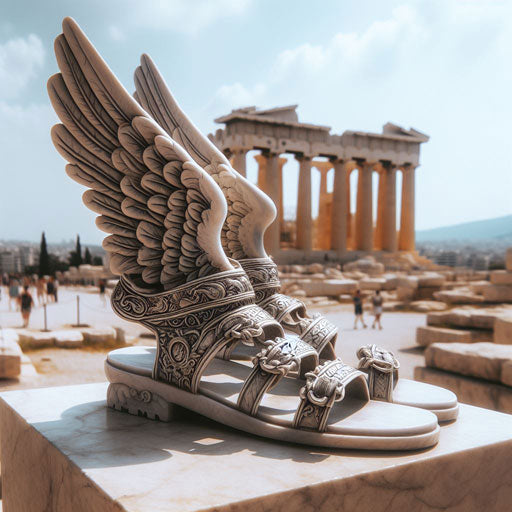Introduction
Hermes, known as Mercury in Roman mythology, is one of the most fascinating and multi-faceted deities in Greek mythology. Revered as the messenger of the gods, Hermes embodies speed, cunning, and versatility. This blog post delves into the origin, symbols, powers, intriguing facts, and relationships of Hermes with other gods and heroes.
Sections List
Origin
Hermes is the son of Zeus, the king of the gods, and Maia, one of the Pleiades and daughter of the Titan Atlas. According to myth, Hermes was born in a cave on Mount Cyllene in Arcadia. His cleverness and ingenuity were evident from birth, as he famously invented the lyre using a tortoise shell on the very day he was born.

Symbols
Hermes is associated with several symbols that highlight his diverse roles:
- Caduceus: A staff entwined with two serpents, often mistaken for the Rod of Asclepius, symbolizes Hermes' role as a messenger and guide.
- Winged Sandals: Known as talaria, these sandals enable Hermes to fly and move swiftly between the mortal and divine realms.
- Petasos: A wide-brimmed hat, often depicted with wings, symbolizes travel and protection from the elements.
- Lyre: Invented by Hermes, the lyre represents his patronage of music and arts.
Powers
Hermes possesses a range of powers that reflect his versatile nature:
- Messenger of the Gods: Hermes can travel instantaneously between the heavens, earth, and the underworld, delivering messages for the gods.
- Guide of Souls: Known as Psychopomp, Hermes guides the souls of the deceased to the afterlife.
- God of Commerce and Thieves: Hermes is the patron of trade, wealth, luck, fertility, animal husbandry, sleep, language, thieves, and travel.
- Shapeshifting and Speed: Hermes can move at incredible speeds and change his appearance at will, aiding him in his trickster activities.
Fascinating Facts
- Hermes and the Lyre: Hermes created the lyre from a tortoise shell and gifted it to Apollo, the god of music, in exchange for the Caduceus.
- Hermes and Cattle Theft: Shortly after his birth, Hermes stole Apollo's cattle and cleverly hid his tracks by making the cattle walk backward.
- Inventor of Fire: Hermes is credited with inventing fire, which he used to cook the stolen cattle.
- Protector of Flocks: Hermes is also known to protect shepherds and their flocks, ensuring their safety and fertility.
Relation with Other Gods and Heroes
Hermes maintains dynamic relationships with numerous gods and heroes:
- Apollo: Despite their rocky start with the cattle theft, Hermes and Apollo developed a strong bond. Hermes gifted Apollo the lyre, and in return, Apollo gave Hermes the Caduceus.
- Zeus: Hermes serves as a loyal messenger to his father, Zeus, often carrying out his commands with precision and speed.
- Athena: Hermes and Athena share a mutual respect for each other, often collaborating on missions requiring both wisdom and cunning.
- Perseus: Hermes aided the hero Perseus in his quest to slay Medusa by providing him with winged sandals and an adamantine sickle.
Conclusion
Hermes stands out in Greek mythology for his versatility, intelligence, and unique abilities. From guiding souls to the afterlife to protecting travelers and merchants, Hermes' influence is vast and varied. His relationships with other gods and heroes further illustrate his integral role in the pantheon. Whether viewed as the cunning trickster or the benevolent guide, Hermes remains a central and enduring figure in mythological lore.
By understanding Hermes' origin, symbols, powers, and relationships, we gain deeper insights into his character and the rich tapestry of Greek mythology.
Interested In Greek Mythology ? Visit Our Blog here



